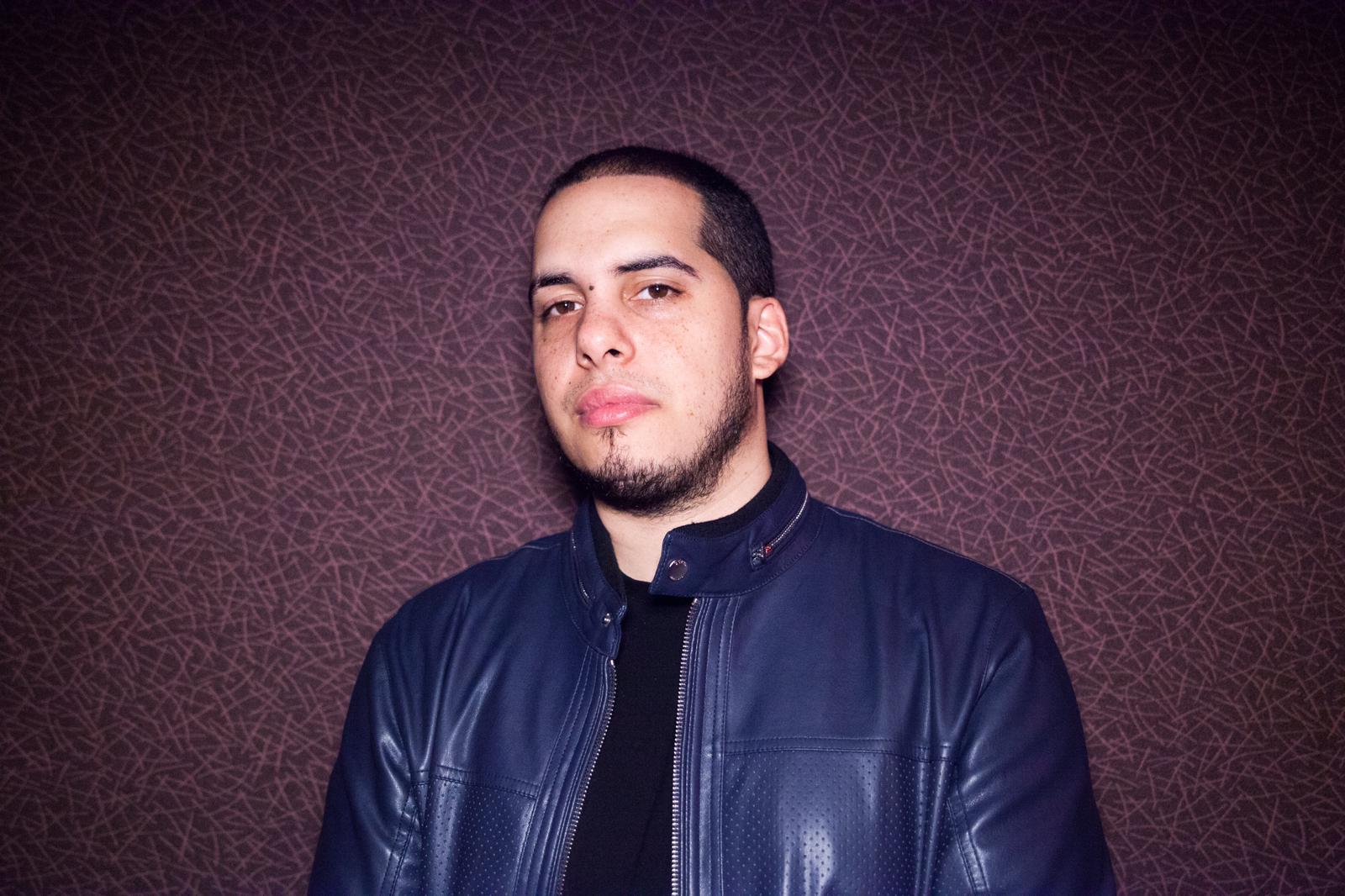Lifestyle
DJ Stacks shares his secrets for success

Breaking into the music industry is no easy task. Just ask Staten Island legend DJ Stacks; he’s been on the scene since the age of 12, when he started making and selling mix-tapes around New York City. Today he’s a resident DJ at celebrity clubs like 1Oak, Tao and Up & Down, has a regular spot on HOT 97’s Radio Mixshow and is a member of the Heavy Hitters, an exclusive DJ organization. We sat down with the rising music star to find out his secrets for success.
Promote yourself
In the music industry, name recognition is everything, which is why DJ Stacks was out every night, distributing his mixtapes to security guards, club managers and anyone who would listen. “Sometimes I’d be outside a club and I would see a celebrity walking in so I would give a mixtape to their management,” he said. “Even on my nights off, I would still go out because I wanted to show people that I was motivated. I was hungry.”
Networking is key
“Over the years, there are a lot of celebrities and people that I’ve built a relationship with just because they kept seeing me at the same club every time they went,” he explains. However, he stresses the importance of being respectful and understanding people’s boundaries. “It’s all about how you approach people, because if you approach people in the wrong way, you’re gonna be remembered in a bad light.”
Choose your circle wisely
The phrase “it’s all about who you know” is a cliche for a reason. “You always want to make sure you’re surrounded by people that motivate you and have the resources and tools to help you make more connections and grow further,” he explains.
Always be available
According to DJ Stacks, he never turned down a gig. “I was always available. If promoters called me I would always say yes, because then it puts the pressure on me to fit it into my schedule,” he says. Promoters will remember your work ethic and are more likely to hire you again.
Show dedication
“I was always on time,” he says. “You have to show how much you want it. You have to be dedicated and you can’t complain. Many who complain will be replaced because there is always somebody else willing to do the same thing better and stronger than you,” he says.
Take risks
When DJ Stacks was first offered an assistant position at HOT 97, it meant giving up his job deejaying at a local restaurant that was his main source of income. Although it was a huge financial risk, it had the potential to open up other doors for him, and it paid off. He’s been at HOT 97 for 10 years now, and on-air for five.
Never Take Anything Personally
According to DJ Stacks, perseverance is key in the music industry. It took him almost five years before he got his foot into celebrity clubs. “There were times they didn’t want to hire me. There were times they didn’t know who I was. There were times that the doorman wouldn’t let me in,” he says. “But I never took it personally. It actually motivated me.”
Lifestyle
When Seasons Shift: Dr. Leeshe Grimes on Grief, Loneliness, and Finding Light Again

Some emotional storms arrive without warning. A sudden change in weather, a holiday approaching, or even a bright sunny day can stir feelings that don’t match the world outside. For many people, the hardest seasons are not defined by temperature; they are defined by what’s happening inside, where grief and loneliness often move quietly.
This is the emotional terrain where Dr. Leeshe Grimes has spent her career doing some of her most meaningful work. As a psychotherapist, registered play therapist, retired U.S. Army combat veteran, and founder of Elevated Minds in the DMV area, she understands how deeply seasonal shifts and unresolved grief can affect people. Her upcoming books explore this very space, guiding readers through the emotional weight that can appear during different times of the year.
What sets Dr. Grimes apart is her ability to see clearly what many people overlook. Seasonal depression, for example, is usually tied to winter months. But she often sees it appear during warm, bright seasons, the times when the world seems happiest. For someone already grieving or feeling disconnected, watching others travel, celebrate, or gather can create its own kind of heaviness. Sunshine doesn’t always lift the mood; sometimes it highlights what feels missing.
The same misunderstanding surrounds grief. Society often treats it as a short-term experience with predictable phases and a clean ending. But in her practice, Dr. Grimes sees how grief keeps evolving. It doesn’t disappear on a timeline. It weaves itself into routines, memories, and milestones. People learn to carry it differently, but they rarely leave it behind completely. And that’s not failure, it’s human.
Her approach to mental health centers on truth rather than pressure. She encourages clients to acknowledge the emotions they try to hide: sadness that lingers longer than expected, moments of joy that feel out of place, and the waves of loneliness that return even when life seems stable. Instead of pushing for quick recovery, she focuses on helping people understand how emotions shift and how to care for themselves through those changes.
Much of her insight comes from her military years, where she witnessed the emotional toll of loss, transition, and constant survival. She saw how people continued functioning while carrying pain that had nowhere to go. That experience shaped her belief that healing requires space, space to feel, to speak, and to move through emotions without judgment.
In her clinical work today at Elevated Minds, she encourages people to build small, steady habits that anchor them during difficult seasons. Journaling helps them recognize patterns and name what feels heavy. Community support breaks the cycle of isolation. Therapy creates a place where emotions don’t have to be minimized or explained away. And intentional routines, daily sunlight, mindful breaks, and calm evenings help rebuild emotional balance.
Her upcoming books expand on these ideas, offering practical guidance for navigating both grief and seasonal depression. She focuses on helping readers understand that healing is not about escaping pain. It’s about learning how to live with it in a healthier way, honoring memories, acknowledging loneliness, and still allowing room for moments of light.
What makes Dr. Leeshe Grimes a compelling voice in mental health is her ability to bring language to experiences that many struggle to explain. She reminds people that emotional seasons don’t always match the weather and that there is no single path through grief. But within those shifts, she believes there is always a way forward.
The seasons will continue to change. And with the right tools, compassion, and support, people can change with them, finding steadiness, softness, and light again, one step at a time.
-

 Tech5 years ago
Tech5 years agoEffuel Reviews (2021) – Effuel ECO OBD2 Saves Fuel, and Reduce Gas Cost? Effuel Customer Reviews
-

 Tech6 years ago
Tech6 years agoBosch Power Tools India Launches ‘Cordless Matlab Bosch’ Campaign to Demonstrate the Power of Cordless
-

 Lifestyle7 years ago
Lifestyle7 years agoCatholic Cases App brings Church’s Moral Teachings to Androids and iPhones
-

 Lifestyle5 years ago
Lifestyle5 years agoEast Side Hype x Billionaire Boys Club. Hottest New Streetwear Releases in Utah.
-

 Tech7 years ago
Tech7 years agoCloud Buyers & Investors to Profit in the Future
-

 Lifestyle5 years ago
Lifestyle5 years agoThe Midas of Cosmetic Dermatology: Dr. Simon Ourian
-

 Health7 years ago
Health7 years agoCBDistillery Review: Is it a scam?
-

 Entertainment7 years ago
Entertainment7 years agoAvengers Endgame now Available on 123Movies for Download & Streaming for Free
